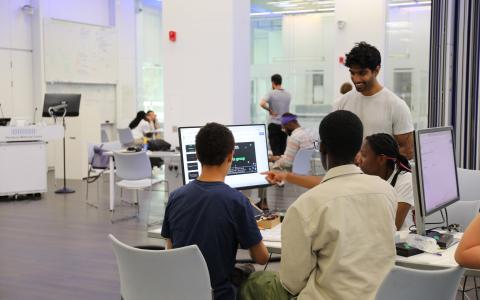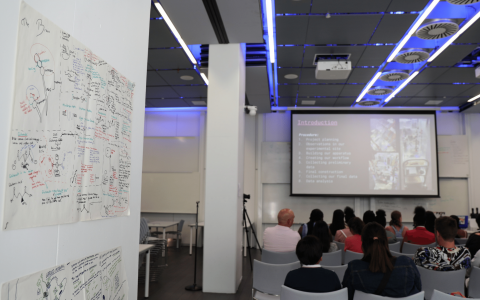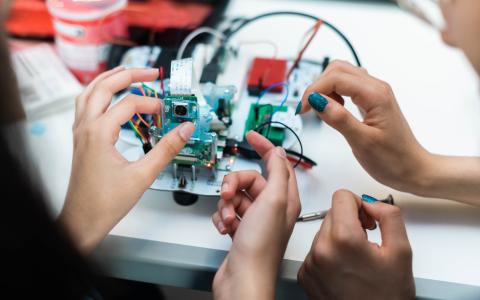
From scratch to dispatch: growing an accessible neuroscience programme for adolescents
By Jai Bhagat and the Neuronauts team
Built upon the principles of increasing accessibility, excitement, and career prospects in science for adolescent students from the Greater London area, the Neuronauts programme was founded at SWC in 2022.
Foundation of Neuronauts
The inspiring first year comprised of a summer camp and an ongoing school club. Over two weeks in July and August 2022, nine students learned core concepts in Electrical Engineering & Computer Science and Neurobiology, and applied this knowledge to design, collect, and analyse data from novel behavioural experiments.
This was followed by the school club, which took place from November 2022 through April 2023. Meeting once every two weeks, eight students designed and built a model, habitable spacecraft for submission to the annual Big Bang School Science Competition.

Structuring the second summer camp
The Neuronauts programme kicked off its second year in electric fashion by teaming up with Voight-Kampff’s first annual summer bootcamp to deliver a neuro-inspired, hackathon-styled robotics course to nine London GCSE students for a week in July 2023. The camp featured short lectures and practicals in electrical engineering and computer science, culminating in a final presentation where students set loose autonomous two-wheel drive rover robots they assembled and programmed during the camp.
From 10 am until 5.30 pm daily, students were given short theoretical lectures in the mornings, and used the afternoons for practical, hands-on exploration of these topics.
- On Day 1, students reviewed the relationships between electric charge, voltage, current, resistance, and power, and built breadboard circuits to empirically verify Ohm’s law.
- On Day 2, students learned about voltage dividers, sensors, and motors, and built light-sensing circuits that drove motors.
- On Day 3, students were taught some basics in Arduino and Python programming, and added their circuits from Day 2 onto a wheel-mounted chassis to yield first-pass autonomous, digital rover robots.
- On Day 4, students learned basic techniques and algorithms for processing audio and visual data, and added cameras and microphones to their bots.
- Finally, on the last day, students learned how to program Python API calls to OpenAI’s Whisper and ChatGPT, to allow ChatGPT to control their bots following voice commands.
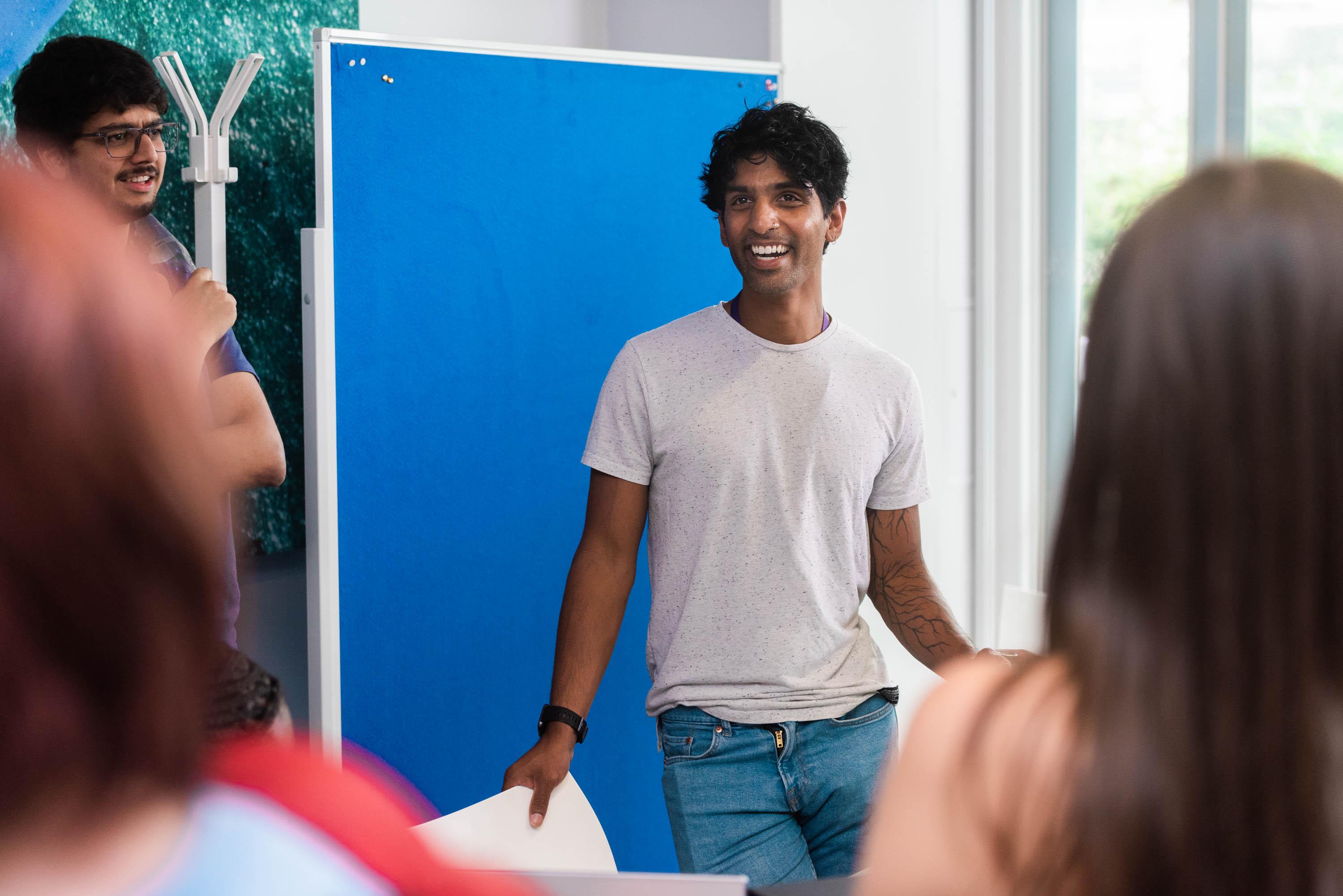
From “scratch to dispatch”
The “from scratch to dispatch“ process of building and deploying ChatGPT bots in one week was incredibly thrilling to witness. Each student’s bot had a slightly different final instantiation, and the processes implemented multiplicatively aggregated. These included:
- Processing and streaming a live video feed
- Performing real-time speech-to-text on a live audio feed
- Wirelessly communicating and keeping in memory a conversation with ChatGPT
- Programming an interface for ChatGPT to control the robot’s motors
- Implementing multithreading in Python to perform multiple of these tasks simultaneously
During the final presentation, we had autonomous rover robots roaming the 5th floor of the SWC, streaming their live video feed to the brasserie projector, and happily obliging participant commands, such as “show me a dance where you draw out your favourite shape”.
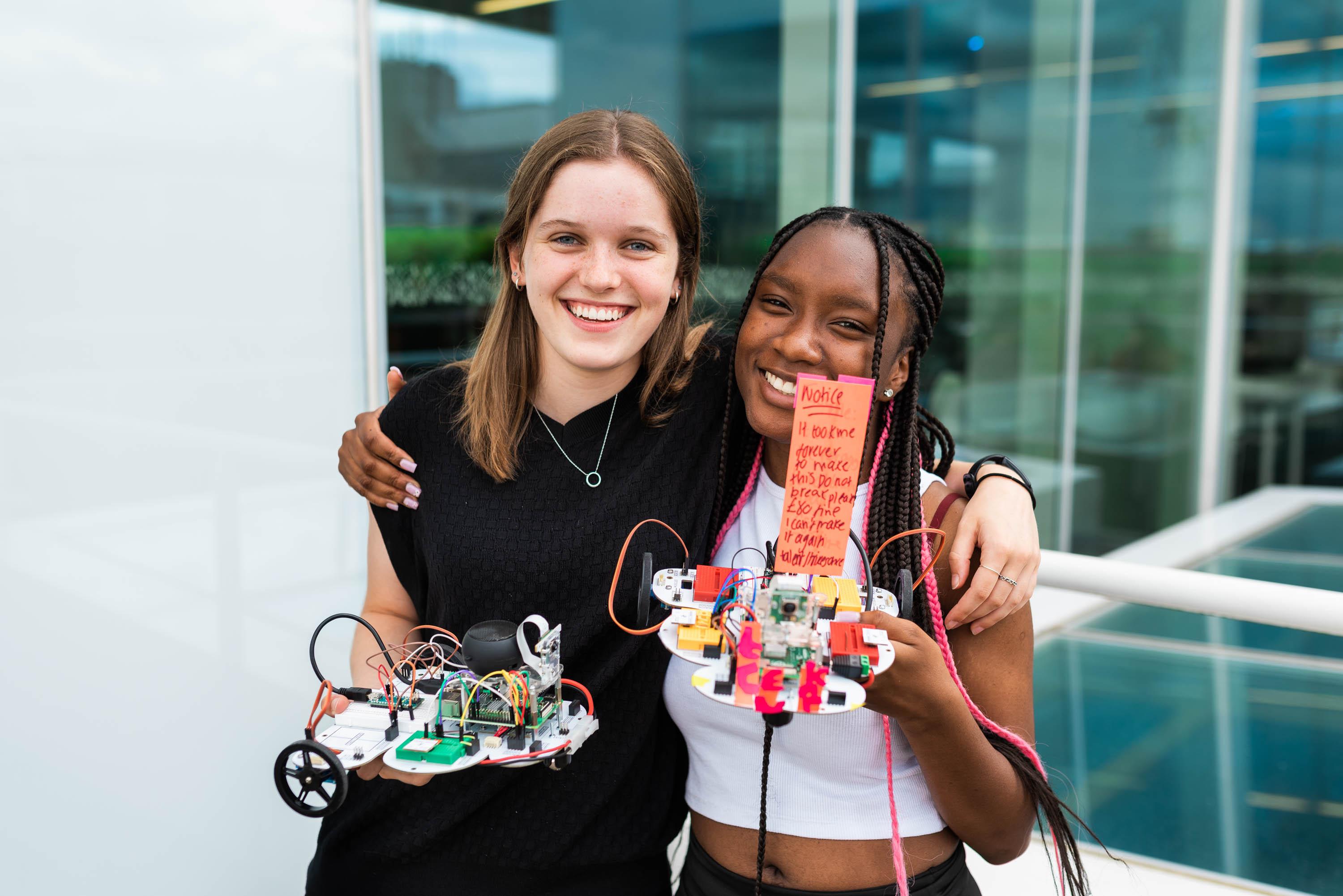
Impact and next steps
Among many moving quotes we received in feedback from the students, this was one of our favourites:
“Undertaking this course has definitely made me more interested in robotics - an area that I have never really explored before. But more than that, this course has exposed me to so many amazing opportunities, whether it is in building up teamwork and communication skills, or learning how to do something that will make an impact.”
We’re happy to announce that we have received additional funding from the SWC for Neuronauts’ 2023-24 school club and 2024 summer camp, and we are ecstatic about continuing to grow and evolve the programme in the future!
Acknowledgements
This year's summer camp, like last year's, was only possible through the help and effort of many people. Organizers and instructors alike played crucial roles in making it an accommodating and rewarding camp. In particular we thank Voight-Kampff via the Jean-François and Marie-Laure de Clermont-Tonnerre Foundation for generous funding, Elena Dreosti, Karen Fergus, April Cashin-Garbutt, Hyewon Kim, and the SWC Brasserie staff for organizational and administrative support, and Adam Kampff, Jai Bhagat, Jo Warren, and Pip Coen for teaching. Lastly, we thank the students for their exuberant energy and engagement, without which our journey of discovery and innovation would have been far less inspiring.
To find out more, please visit our Neuronauts page
